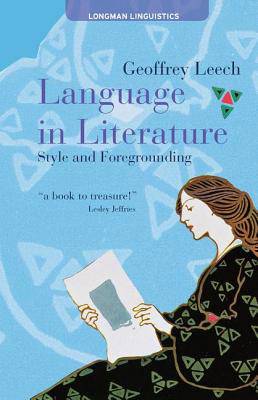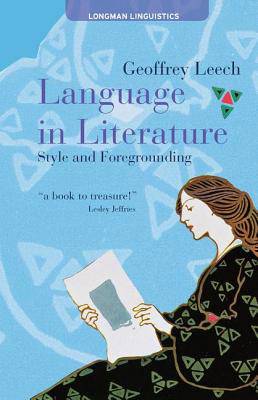
- Retrait gratuit dans votre magasin Club
- 7.000.000 titres dans notre catalogue
- Payer en toute sécurité
- Toujours un magasin près de chez vous
- Retrait gratuit dans votre magasin Club
- 7.000.0000 titres dans notre catalogue
- Payer en toute sécurité
- Toujours un magasin près de chez vous
Description
Over a period of more than forty years, Geoffrey Leech has made notable contributions to the field of literary stylistics, using the interplay between linguistic form and literary function as a key to the 'mystery' of how a text comes to be invested with artistic potential. In this book, seven earlier papers and articles have been brought together with four new chapters, the whole volume showing a continuity of approach across a period when all too often literary and linguistic studies have appeared to drift further apart. Leech sets the concept of 'foregrounding' at the heart of the interplay between form and interpretation. Through practical and insightful examination of how poems, plays and prose works produce special meaning, he counteracts the 'flight from the text' that has characterized thinking about language and literature in the last thirty years, when the response of the reader, rather than the characteristics and meaning potential of the text itself, have been given undue prominence. The book provides an enlightening analysis of well-known (as well as less well-known) texts of great writers of the past, including Keats, Shelley, Samuel Johnson, Shaw, Dylan Thomas, and Virginia Woolf.
Spécifications
Parties prenantes
- Auteur(s) :
- Editeur:
Contenu
- Nombre de pages :
- 234
- Langue:
- Anglais
- Collection :
Caractéristiques
- EAN:
- 9781138134072
- Date de parution :
- 02-11-15
- Format:
- Livre relié
- Format numérique:
- Genaaid
- Dimensions :
- 140 mm x 216 mm
- Poids :
- 421 g

Les avis
Nous publions uniquement les avis qui respectent les conditions requises. Consultez nos conditions pour les avis.






